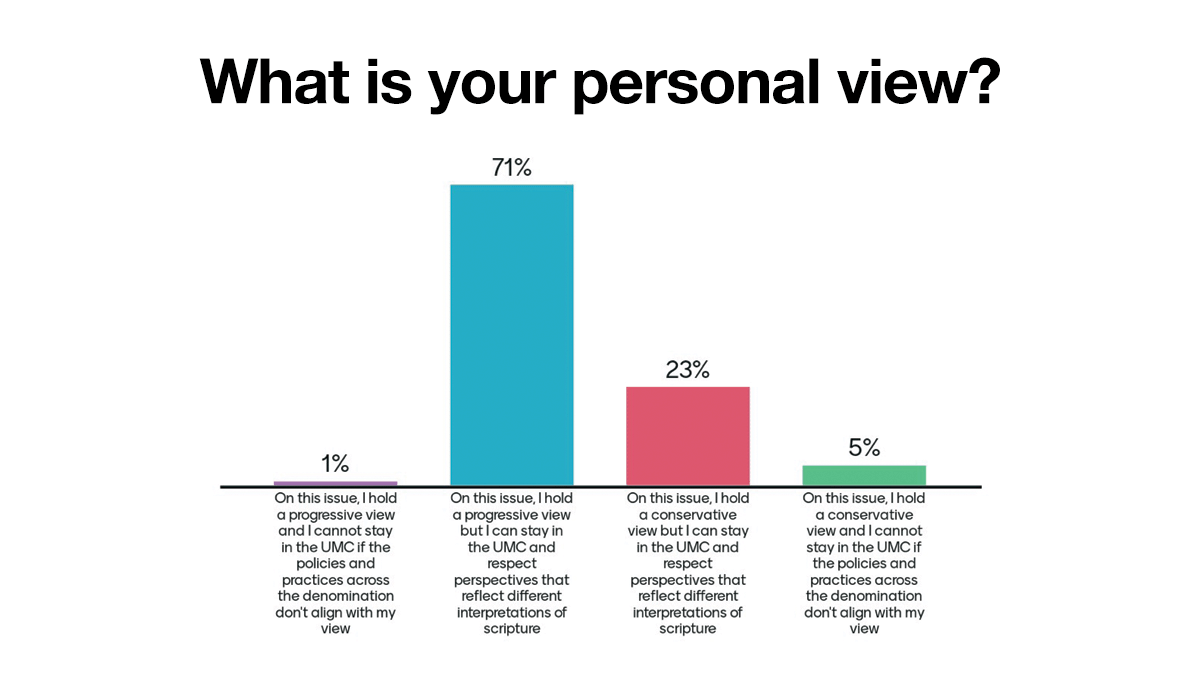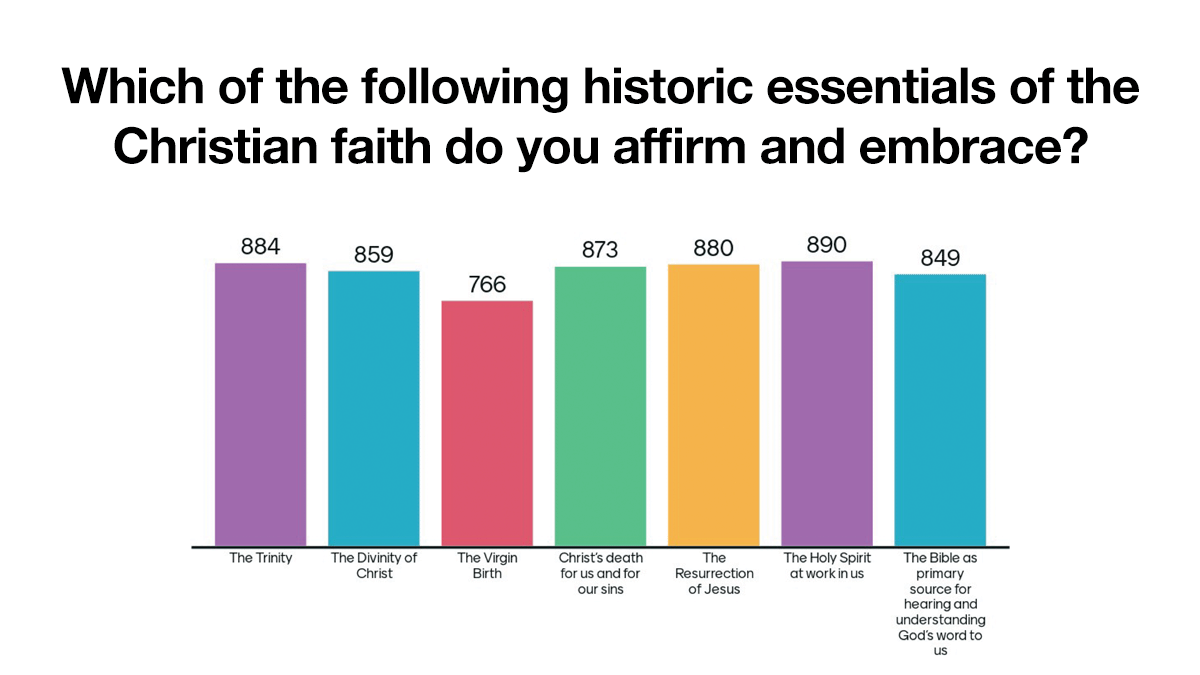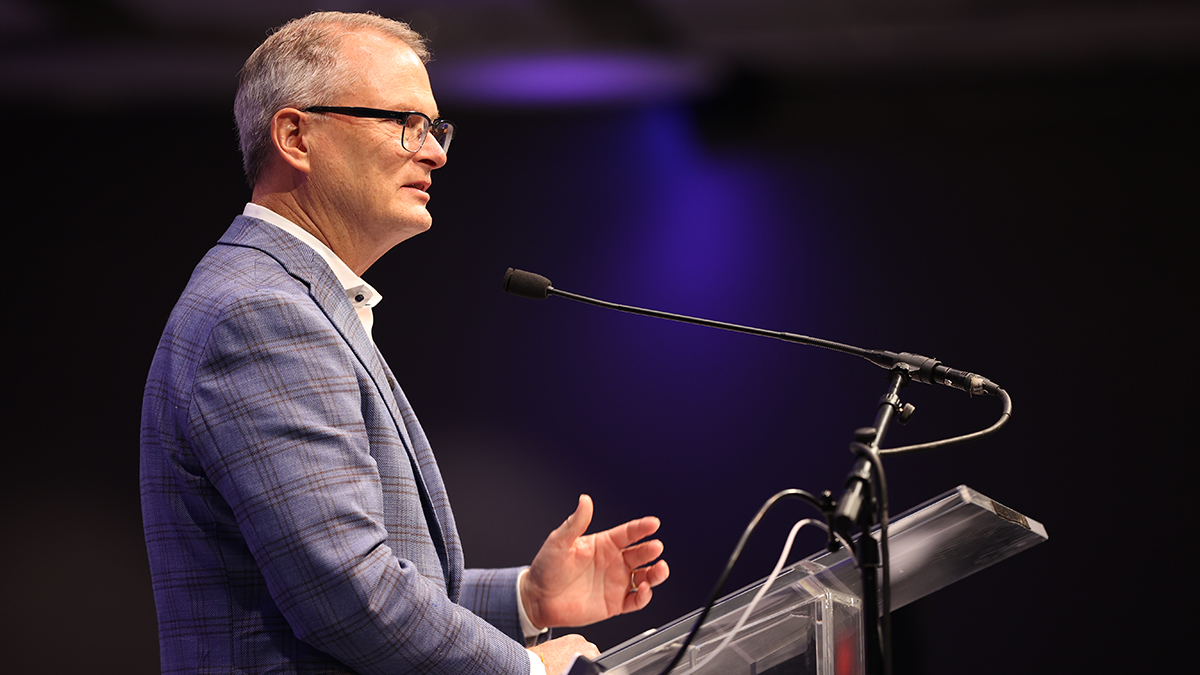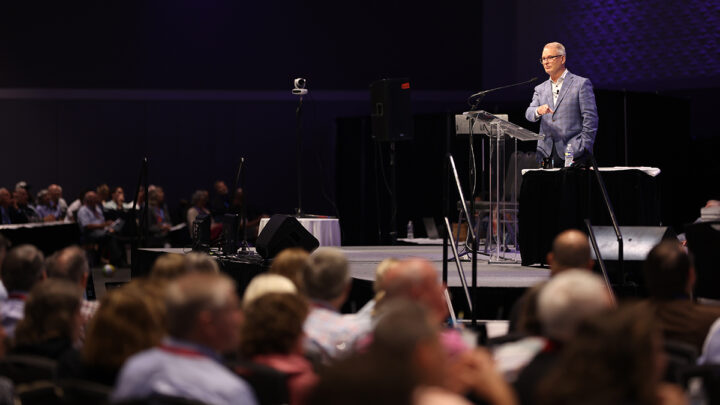The Friday afternoon session began the Order of the Day with inspiring teaching from Rev. Adam Hamilton, author and pastor of The United Methodist Church of the Resurrection in Kansas. Rev. Hamilton framed his speech around three tasks:
- looking at where we are as a church now and who we are going forward,
- considering some essentials of creating vital, vibrant congregations, and
- calling us to a Jesus Revolution.
First, Hamilton shared encouraging statistics about the current state of The United Methodist Church. His vision for the future of The UMC is mission-driven rather than conflict-driven. He gave several examples of how the loss of churches through disaffiliation is leading to exceptional growth in churches remaining United Methodist and the birth of many new faith communities.
The conflicts we’ve experienced have helped us to clarify what it means to be United Methodist. Leading us in reciting the Apostles’ Creed, Hamilton challenged those who claimed that United Methodists are changing their historic doctrines. He affirmed the values that make us United Methodist – critical thinking, living both the evangelical and social gospel, and faithful biblical interpretation that considers the Bible’s historical and cultural context in the light of other principles of scripture, reason, tradition, and experience.
Hamilton also shared his thoughts on what might happen at General Conference 2024. He believes we will approve a regionalization plan, ultimately remove the language related to the “practice of homosexuality” from The Book of Discipline, agree to disagree, and all agree to love all people.
The Church of the Resurrection has taken surveys that reflect this belief. We took this same survey, and the results were similar. The vast majority (94%) of the North Carolina Annual Conference can be in a church with others who hold different interpretations of scripture related to same-sex relationships. The survey also showed that almost everyone affirmed the major tenets of Christian theology. Hamilton reiterated that we don’t want anyone to leave, all are welcome here, and welcoming churches are better poised to be a church home for those in the larger culture.


All denominations are declining, but Hamilton offered several keys to vital United Methodism to help our churches grow. Using Matthew 9:35-38 as a guide, Hamilton suggested asking this question of each congregation, “what would Jesus want to do in my town if he were here today?” He drew a diagram that showed how the job of the church is to close the gap between the way the world is and the way God created the world to be. Giving examples from his own church, Hamilton encouraged each church to clarify its mission, vision, and plan.
Hamilton shared how paying attention to the people around you provides opportunities to share the life of Christ. For example, of 400 home visits he made during the first years of The Church of the Resurrection, 399 families joined the church because he had built a relationship with them by listening to their stories and sharing his own. People are persuaded to become Christians because they’ve seen us love them.

In giving a simple sermon structure, Hamilton recommended that every sermon speak to the head, heart, and hands — start with questions about the human condition, does the Bible speak to that in any way? Show people that the Bible does have something to say about their lives. Jesus preached this way through stories.
Using clips from the film Jesus Revolution, Hamilton spoke to the criticism that pastors often receive, especially when trying something new or loving people who are outcasts. Reflecting on when his church lost 800 people, he shared what his wife, LaVon, asked of him, “Is God calling you to leave, or are you running away?”
Comparing our culture to that in the film in the 1970s, he believes that we are also poised for a Jesus revolution, and The United Methodist Church is equipped to lead it. Hamilton concluded with a prayer where we offered ourselves to Jesus, praying that he will work in and through us as we seek to incarnate his presence, to be the body of Christ, for our world today.

